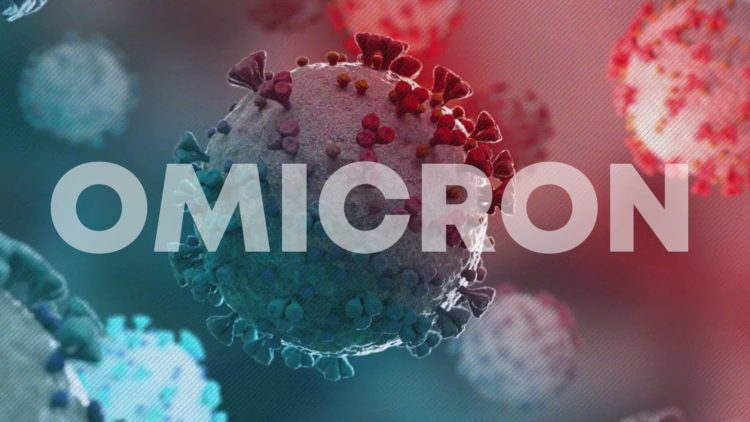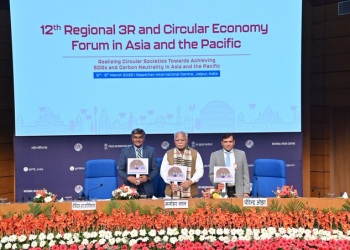New Delhi: South African scientists have detected two new sub-variants of the highly contagious Omicron variant – BA.4 and BA.5.
According to Tulio de Oliveira, Director of Centre for Epidemic Response and Innovation (CERI), South Africa, the sub-variants have been detected in South Africa, Botswana, Belgium, Germany, Denmark and the UK.
Although “early indications show these new sub-lineages are increasing as a share of genomically confirmed cases in South Africa”, there is, however, “no cause for alarm as no major spike in cases, admissions or deaths” are seen in the country, de Oliveira shared in a series of tweets.
“The complex immunity landscape in South Africa, with high population immunity, is probably one of the main causes of the low infections, hospitalisation, and deaths since the Delta and Omicron BA.1 wave,” he said.
Incidentally, South Africa and Botswana were also the first to report on Omicron in November last year. South Africa was also the first country to be hit by the super mutant and vaccine evading variant of concern, before it became a global wave.
BA.4 and BA.5 sub-variants are also on the radar of the World Health Organization (WHO).
The global health agency said it had begun tracking the two sub-variants because of their “additional mutations that need to be further studied to understand their impact on immune escape potential”.
Globally, only a few dozen cases of BA.4 and BA.5 have been reported to open access database GISAID. The earliest BA.4 sample reported to GISAID was from South Africa, with a sample collection date of January 10, 2022, the Independent.co.uk reported.
However, the accumulation of genomes and geographic spread is more recent, suggesting “that the variant is transmitting successfully”, said the UK Health Security Agency in its latest report.
Both BA.4 and BA.5 have also been added to the UK agency’s monitoring list. One case each of BA.4 has already been detected in Scotland and England, up to March 30, according to the UKHSA.
The health officials said there were “potentially biologically significant mutations” in the two variants, the report said.
In his thread of tweets, de Oliveira explained that BA.4 and BA.5 share a similar spike profile as BA.2, except for additional mutations: 69-70del, L452R, F486V.
But “the good news is that BA.4 and BA.5 (like BA.1) can be identified by proxy marker of SGTF using the Thermo Fisher qPCR assay”, de Oliveira said.
Although BA.4/BA.5 has many shared mutations with the other Omicron lineages, it also has some differences. The impact of differences on virus phenotype needs to be determined, de Oliveira said, adding that the work is underway to characterise them.
Moreover, the researcher also found differences between the sub-variants BA.4 and BA.5. “BA.4 and BA.5 differ from each other by three amino acid mutations outside the spike protein,” he explained.
The impact of differences on virus phenotype needs to be determined, de Oliveira said, adding that the work is underway to characterise them.
“Vaccination remains the key intervention to protect against severe disease, hospitalisation and death from all known variants,a he said.
(IANS)



















